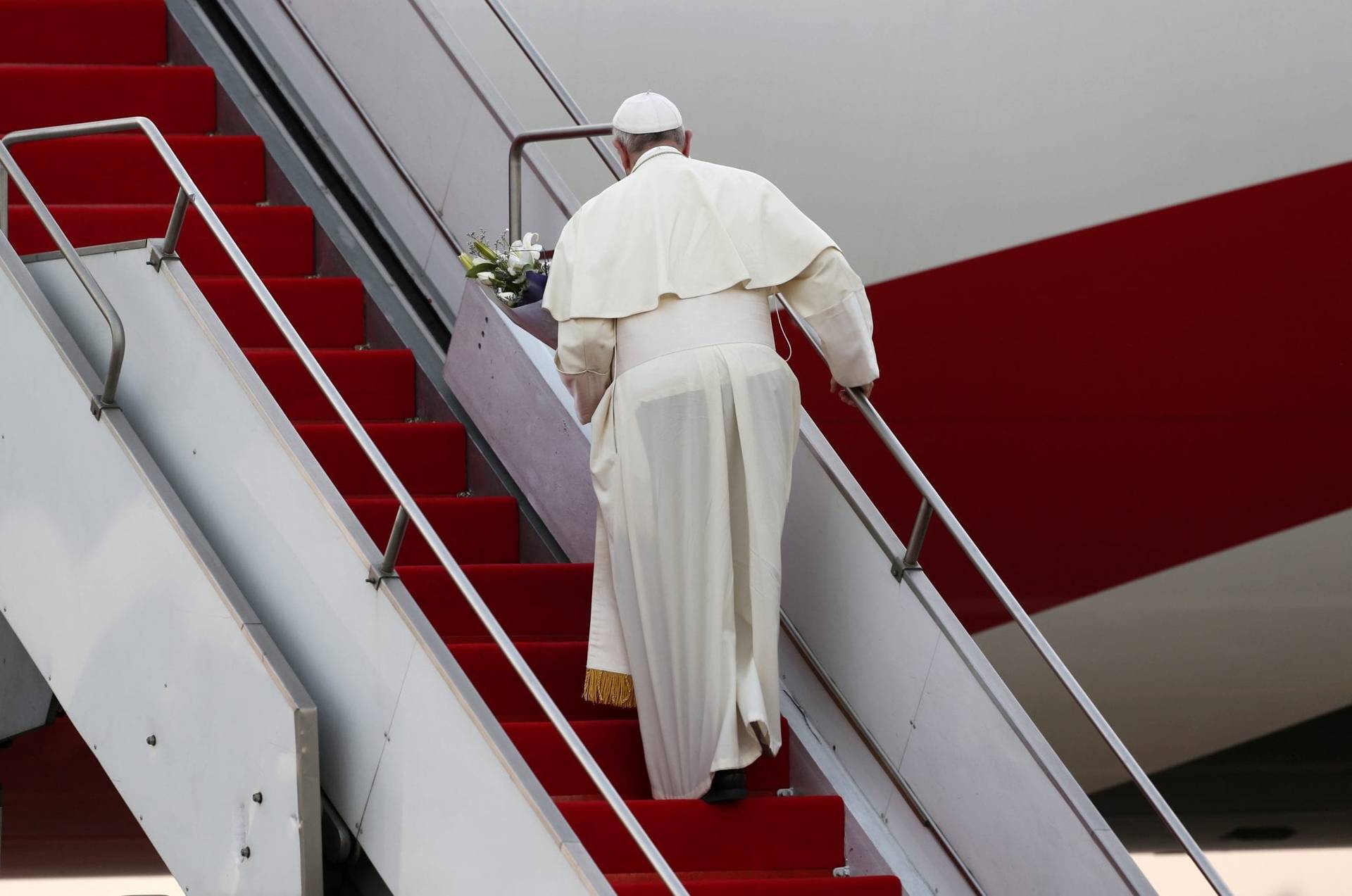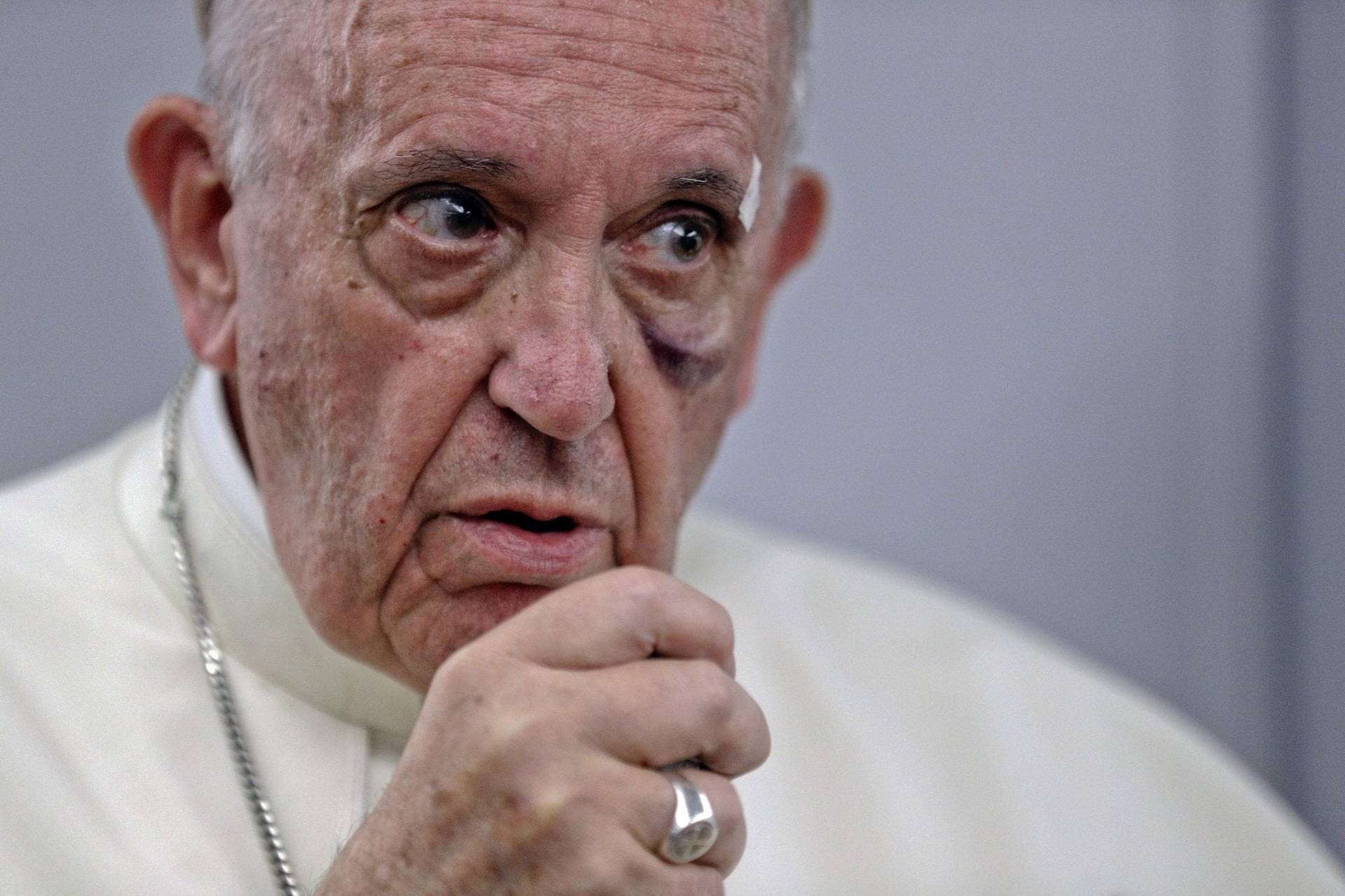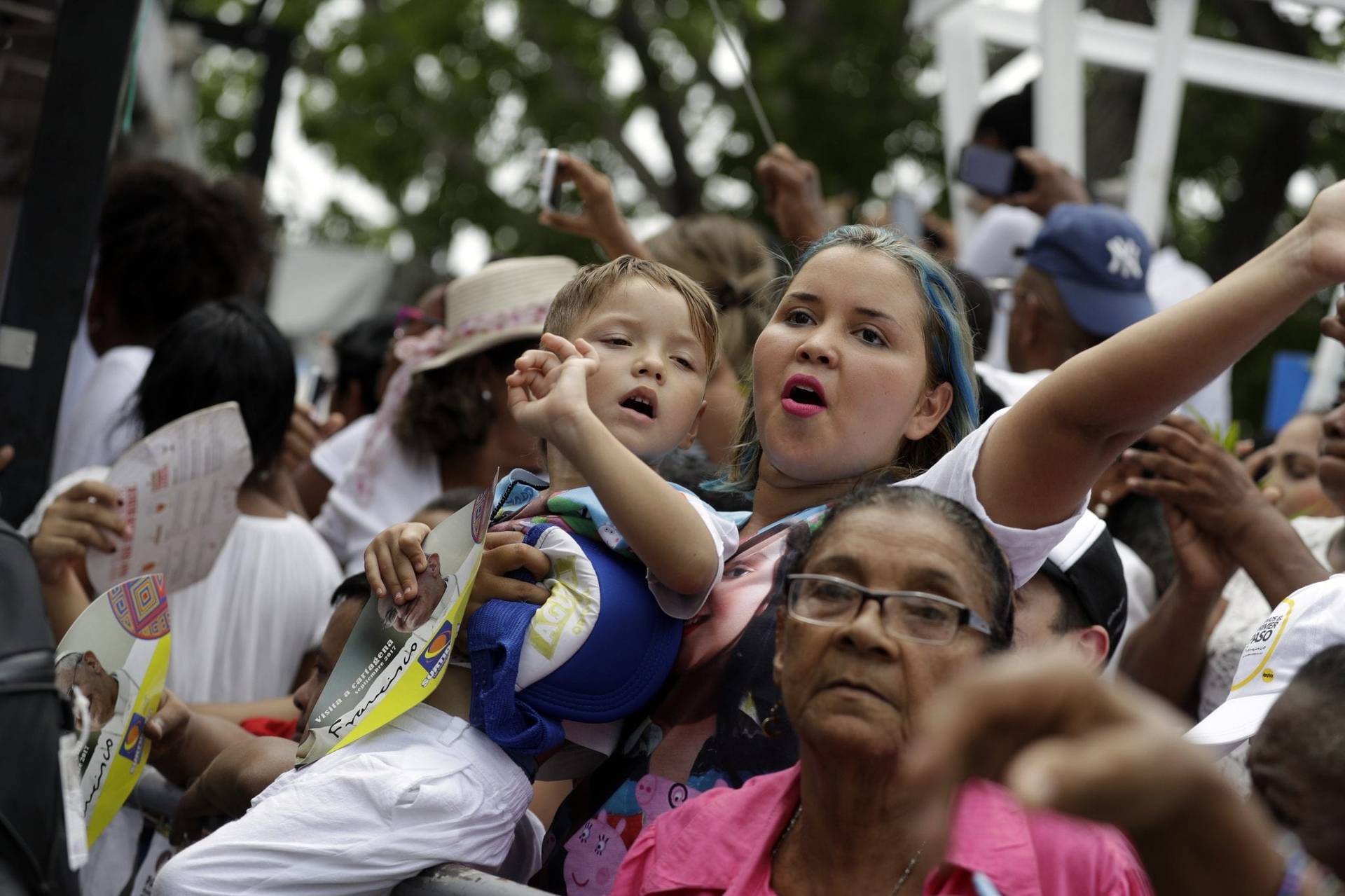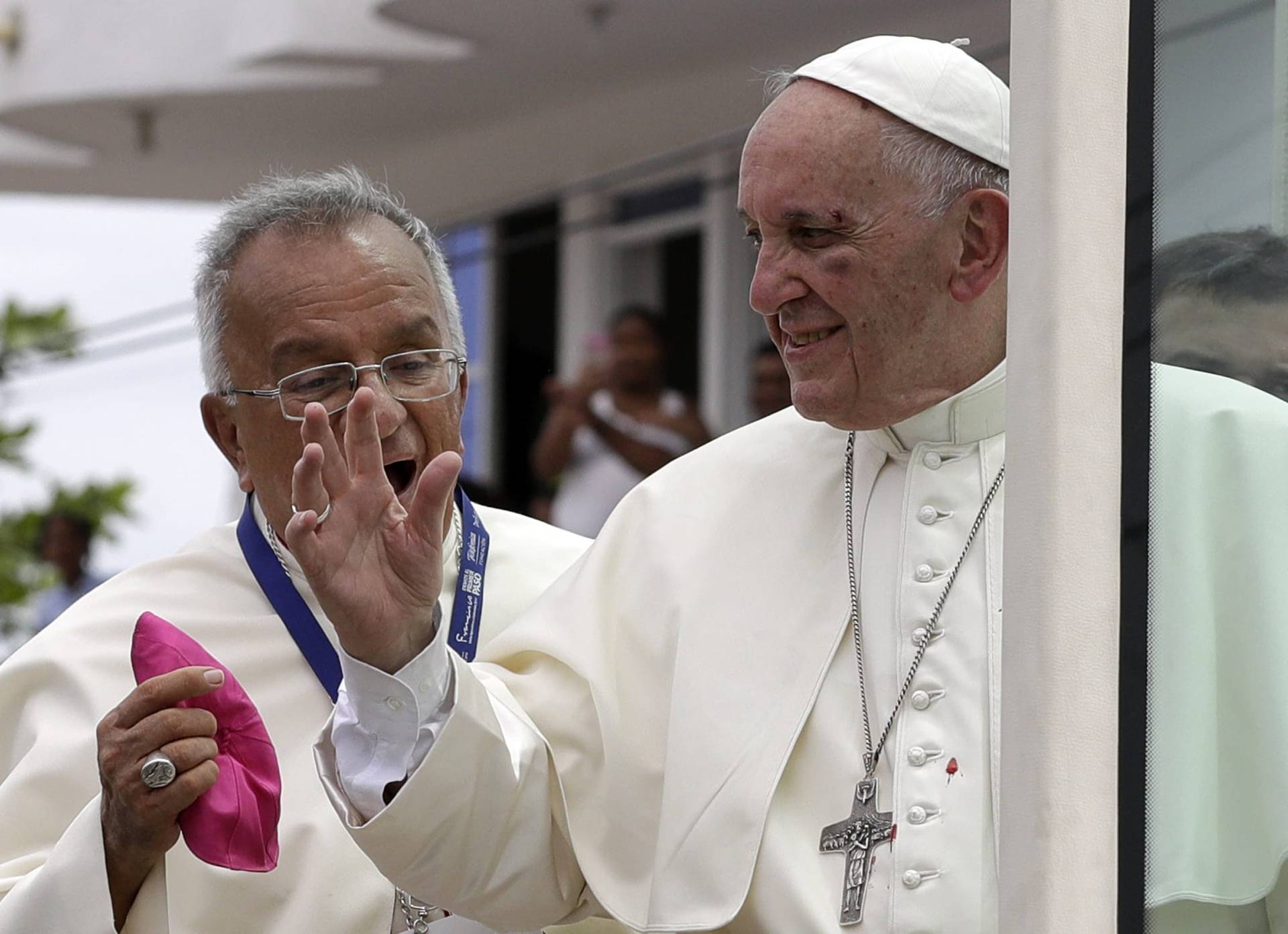ROME — Heading in, one PR fear about Pope Francis’s Sept. 6-11 trip to Colombia was that it might come off as nothing more than a victory lap for the government of President Juan Manuel Santos and his controversial peace deal with the country’s Marxist rebels, leaving behind deeper division rather than reconciliation.
In the end, however, if the outing felt like a victory lap for anyone, it wasn’t just Santos, although he did well too, but the Colombian people.
The pope visited four cities in five days, where millions at a time came out to participate in the Masses he celebrated in Bogotá, Villavicencio and Medellín, not to mention a half million in Cartagena, representing virtually half of the city’s population.
Hundreds of thousands more came out to greet the pope as he rolled through those cities in the Popemobile, virtually throwing their kids at him. That’s what struck him the most about Colombians, according to what he told journalists travelling with him.
“What struck me the most is that the father, mother, raised up their children to help them see the pope so the pope could bless them,” he said. “It’s as if they were saying ‘This is my treasure, this is my hope. This is my future.’”
A people capable of having children and showing them as if they were a country’s treasure, the pope said, is one that has “future and hope.”

On his last address on Colombian soil, closing the Mass he celebrated in Cartagena, the pope urged Colombians not to be content with “taking the first step,” which was the motto for the trip.
“Instead, let us continue our journey anew each day, going forth to encounter others and to encourage concord and fraternity,” he said. “We cannot just stand still. Colombia, your brothers and sisters need you. Go out to meet them. Bring them the embrace of peace, free of all violence.”
Not once during the trip did Francis voice direct support for the peace accord signed by Santos and the Revolutionary Armed Forces of Colombia (FARC), which was later joined by the National Liberation Army (ELN), though he did reference it on Thursday during a meeting with Colombia’s political leadership.
“This meeting allows me to express my appreciation for all the efforts undertaken over the last decades to end armed violence and to seek out paths of reconciliation,” Francis said at Casa de Nariño, the official home and principal workplace of the President of Colombia.
“Over the past year, significant progress has been made; the steps taken give rise to hope, in the conviction that seeking peace is an endeavor that has been open, a task which does not relent, which demands the commitment of everyone.”
During the flight back, he also said he was thankful for the addition of the National Liberation Army, announced two days before the pope’s trip.
However, during his homily at the Mass in Cartagena, which he told reporters was more a message than a homily, the pope said that the Country’s peace process, which is trying to put a definitive end to a 54-year conflict, can’t be reduced to bureaucratic talks: it must involve the people, who, in time, must be willing to take steps toward reconciliation.
“We have learned that these ways of making peace, of placing reason above revenge, of the delicate harmony between politics and law, cannot ignore the involvement of the people,” he said on Saturday.
“Peace is not achieved by normative frameworks and institutional arrangements between well-intentioned political or economic groups,” Francis added. Rather, “Jesus finds the solution to the harm inflicted through a personal encounter between the parties.”
This call for the people to be involved in the process was a common thread throughout the trip. Another one was the need to address the roots of the violence.

“Let us not forget that inequality is the root of social ills,” the pope said addressing the local civil authorities on Thursday. On Saturday, he said that the peace process must draw from the sectors “that have often been overlooked, so that communities themselves can influence the development of collective memory.”
Under the heading of Colombia taking the first step[s] towards reconciliation, Francis gave several keys to Colombians on how to achieve it in a way that goes beyond partisan politics.
As a footnote, the call to move past partisan interests was so much on his mind, and extends so far beyond Colombia itself, that he tweeted about it on Tuesday:
I encourage world leaders to set aside partisan and ideological interests and seek together the common good of all humanity.
— Pope Francis (@Pontifex) September 12, 2017
Francis didn’t shy away from imparting some tough love, being demanding on Colombians from all walks of life: politicians, the bishops, the priests, the youth, and even criminals.
In Medellín, once the enclave of Pablo Escobar’s drug cartel, he went off the cuff to say that “young people are naturally restless, that kind of restlessness that has often been deceived and destroyed by drug sicarios (hired killers).”
He told the youth to be teachers of forgiveness. He reminded victims of violence and perpetrators that “Hate leads to hate, death to death,” he called for human life to be protected at all stages, decried as unacceptable that children are robbed of childhoods, denounced Latin American machismo, and reminded Catholics in Colombia, who represent over 70 percent of the population, that Jesus is much more demanding than following a set of rules, and being paralyzed by a rigorous interpretation of the law.

But above all, what the five days visit left was clear tangible proof that, despite the political division the peace agreements have generated, Colombia is a country capable of peace.
Bogotá, a city that averages 3.4 violent deaths a day, had none during the first 48 hours of the visit, and the same thing happened with the other cities he visited. Local media are already describing it as a miracle.
One other immediate fruit of the visit is that notorious rebel leader Rodrigo Londoño, commander of the FARC and formerly known by the alias “Timochenko,” sent a letter to the pontiff on Thursday: “Your repeated messages about God’s infinite mercy move me to plead for your forgiveness for any tears or pain we have caused to the people of Colombia.”
The visit proved to Colombians that they could go out in the streets- 6.8 million of them did- and be at peace. Including victims and perpetrators, 16,000 of whom sat together for hours in Villavicencio waiting for the pope to lead the Big National Prayer of Reconciliation.
What remains to be seen, however, is if Colombians, having taken the first step with Francis, will leave politics aside and take the second one.














